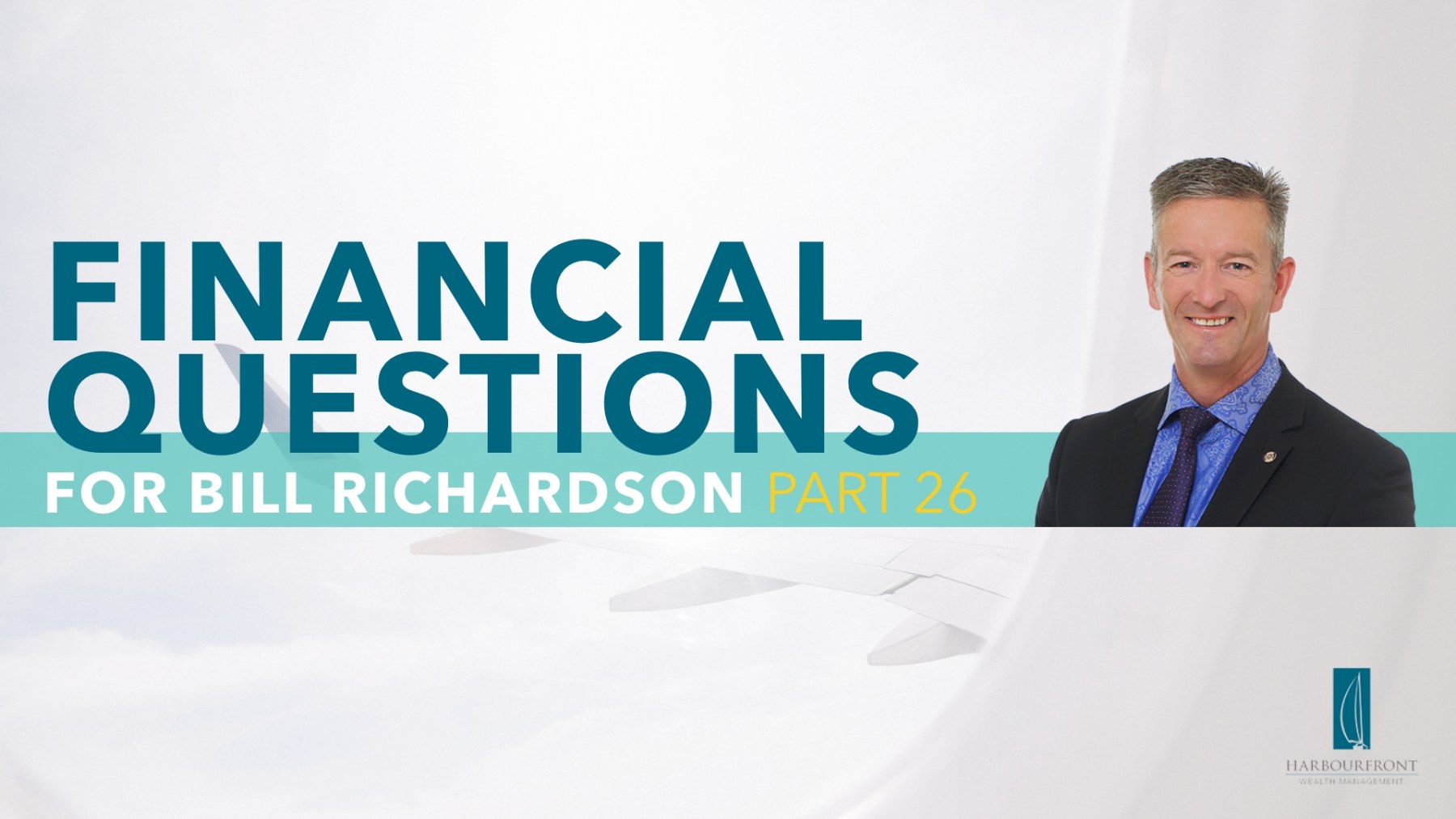Financial Questions for Bill Richardson Part 26
Hello everyone. Hope all is well. Here is the latest edition of 3 Questions for Bill Richardson.
Q1: I like making money but am always frustrated when I must pay taxes. Over the past few years, my portfolio has performed very well and as I was preparing my income tax return, I noticed that I had some rather large capitals gains from the sale of stocks like Adobe, Nvidia and Facebook and now I must deal with paying taxes on those gains. Should I be concerned about this? Is there anything I can do?
In hindsight, the sale of some stocks in 2021, especially in the technology sector have turned out well. At the time of writing, a number of positions we sold are down considerably…Adobe is down 24%, Nvidia is down 25%, and Facebook (now Meta Platforms) is down 36%, year-to-date.
If you held onto these positions and decided not to sell and trigger a capital gain, they would be down significantly. By selling some or all your winning position(s), it locks in the gains and allows you to reallocate the proceeds to other areas to further diversify and hopefully buy low somewhere else. You may recall the old investment adage to buy low and sell high.
While nobody likes to pay taxes, the alternative is worse… losing money. One of the big mistakes investors make is that they don’t sell their investment when they’re up because they will have to pay tax and they think they will continue to go up indefinitely. Paying some tax along the way as you take advantage of some of your gains is a lot better than losing 30-40% because you have waited too long.
From time to time you may have the opportunity to sell an investment that isn’t performing well and sell it at a loss. When you trigger a capital loss on an investment, you can use the capital loss against any capital gains that you have earned over the past 3 years and you can carry it forward indefinitely and use against future capital gains. If you sell an investment to trigger a capital loss, you cannot buy it back for 30 days after the sale. You also cannot have purchased the investment 30 days before the sale. You also need to be careful when you are selling an investment that is down as those are often the ones that can rebound significantly.
Q2: I’ve noticed that some of my mutual funds seem to be underperforming the major indices, like the TSX 60 and the S&P 500. Can you help me to understand what is happening?
There could be several explanations, but I will focus on a couple. Mutual fund managers are hired to try to outperform the indices. Statistics show that over 90% of returns are driven by asset allocation. Asset allocation can be viewed at a macro level as the split between major asset classes, like stocks and bonds or between countries, like Canada or the US vs international or it can be viewed by sectors, like financial services vs. technology vs. energy.
Sector allocation is something that we keep a very close eye on. Over the past year, the US markets, which are strongly weighted to technology have been very strong vs. Canadian markets, which are weighted more strongly toward banks and energy companies.
Energy stocks have been on a toboggan ride down since 2014 and based on the XEG ETF, lost over 86% of its value at its worst, with an especially sharp drop when COVID decimated markets and oil has being virtually given away. VGT, a technology ETF, rose 95% over that period but was up 175% before COVID knocked it down. So, if you were invested in US markets for most of that period, you did much better than being in Canada but with sharp increases in the price of oil, largely due to the Russian invasion of Ukraine, energy stocks have outperformed other sectors.
From our reviews of US mutual fund managers, many got carried away with their love for technology stocks and overweighted their portfolios in that sector. Technology is already the biggest sector of the S&P, making up roughly 25% of that index but some big managers increased their exposure well above that to over 50%, so when markets started to fall in early 2022 and investors bailed on their technology holdings, these fund managers were left holding the bag.
A second way to look at this is that many fund managers are closet “index huggers”, meaning that they essentially just buy the index and charge fees. So, their portfolios were 25% in technology stocks.
Turning back to energy stocks, even with a major move, XEG now has a 2% annualized 10-year return and is more difficult to manage for long-term investors, who have a five- or ten-year time horizon. Success in this market requires precise timing, which is well outside of the skill set of most portfolio managers, advisors or investors, unless you can benefit from hindsight.
So recently Canada has outperformed US markets and if you were fortunate enough to be in the right place at the right time, you did well in Canada but longer-term, the US market offers much better companies and value for longer-term investors.
Q3: In previous editions of this report, you discussed that you keep a close eye on longer-term interest rates. I hear lots of talk about the Fed increasing interest rates over the next two years to fight inflation. What are you seeing there?
Inflation rates have spiked significantly higher, when they were only slightly higher than zero when COVID first hit to 8.54% today. Much of this can be attributed to things like prices at the gas pumps that have more than doubled since the 2020 lows and food prices and building materials, that can be linked to supply-chain issues.
The Fed prefers to keep inflation in check and uses interest rates as a tool to slow down buying, which can lower inflation. So, they have been moving rates back up, especially from the extreme COVID lows to what they consider more normal levels. As a result, longer-term rates have moved up as well, from 0.5% to 2.72%. Looking back, 10-year bond yields over the past 10-years averaged just over 2% and peaked at 3.24%, so at 2.72%, there may be room for further increases but interest rates in the 3% range are still acceptable for companies to grow.
My concern about inflation is that it may lead the Fed to tighten and put an economy that has been fighting through COVID into recession and that’s when equity risk will increase but as long as they are prudent, equity markets should be stable.
Source for market data: www.ycharts.com The stocks/ETFs featured in this material are for illustration purpose only, this should not be viewed as a solicitation of buy or sell. Always talk to a professional before investing to know if the product is right for you. Past performance does not necessarily predict future results; each asset class has its own risks.
Have a great weekend,
Bill

